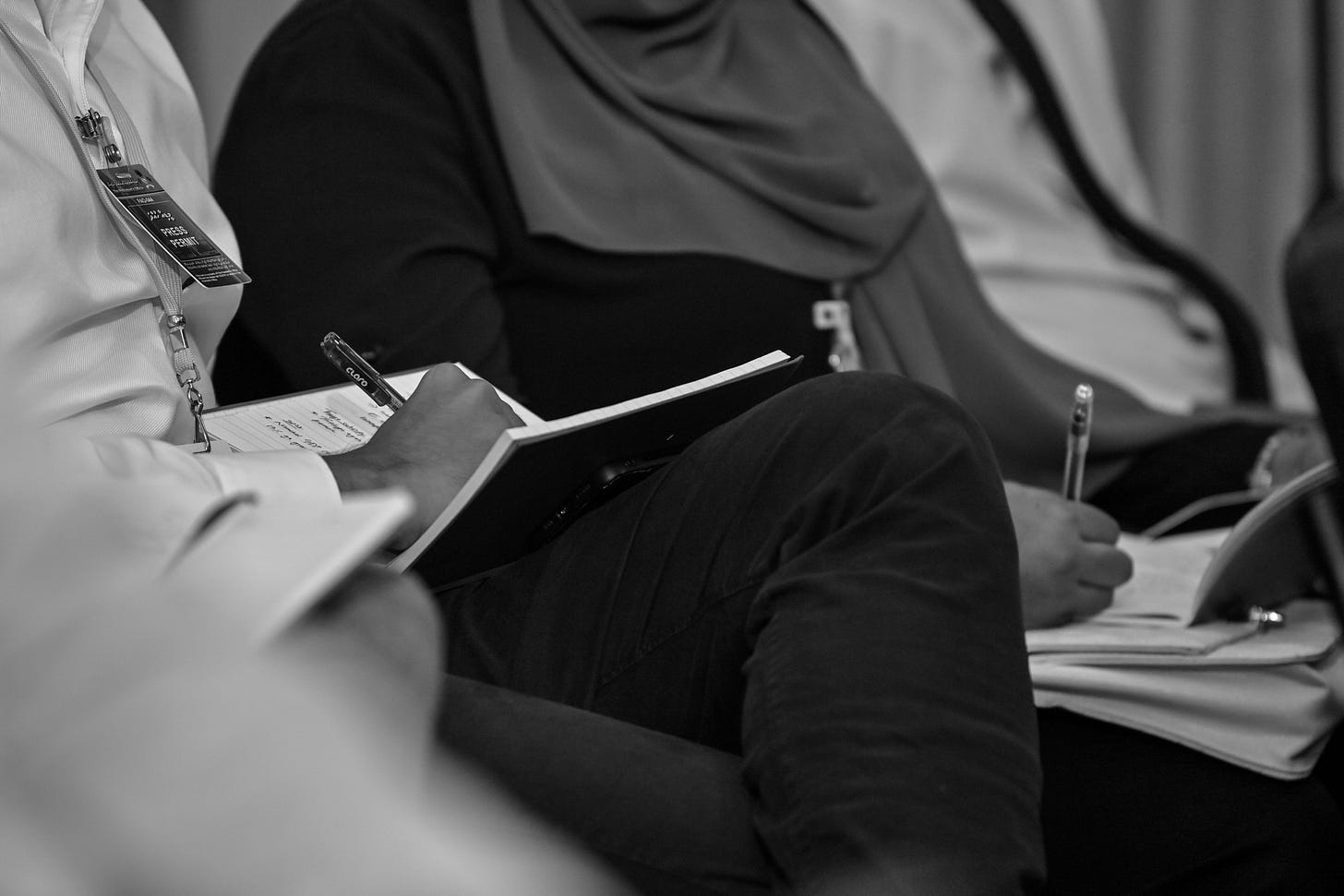‘Don’t Trust Any of You’: A Harsh Lesson and a Wake-Up Call for Maldivian Media
After hearing unfiltered criticism of our profession, I can't escape this conclusion: we must build a new system to earn back the public's trust.
I spent my weekend in Raa Dhuvaafaru facilitating a media literacy workshop organised by the Youth and Information Ministry. People from the Raa Atoll islands and even a small number from the Noonu Atoll islands took part.
The session that I delivered was on the significance of investigative journalism and how to do it effectively. I tried my best to differentiate investigative journalism apart from the rest of the news beats.
The attendees in my session were rather critical of the way the mainstream media reports the news.
The fact that we gloss over the issues that really affect regular people is their number one gripe. But rather of reporting on actual problems, we focus on promoting the government and corporations. Anonymous social media accounts, according to one participant, are more effective, and they even see it as investigative journalism. The idea that journalists can be bought off or otherwise silenced is another school of thought.
"You journalists are trying to pursue your agendas. We ordinary folks don't matter to them. Quite a few journalists are now holding political office. Journalists often work for the express purpose of furthering their political careers or amassing personal wealth. I don't trust any of you,” said a participant.
Oh, and there's one more statement that really hit me. Journalists, don't have any standards, therefore write whatever comes to mind. We are not responsible, to put it simply.
Such remarks show the society's view on the journalists and news outlets.
My thoughts were wandering after the session. I can't help but think, "We need to do better." More is expected of us from the public. We must not continue to disregard the opinions of the public.
People have lost faith in the media, it seems. There are a number of causes for this mistrust. Journalistic integrity and professionalism are declining. When this gap is filled by social media, false information spreads like wildfire. The average person falls into this trap when they incorrectly think that anonymous social media accounts and tabloids are forms of news. The flaws of our media have left a vacuum, and these sources are just trying to fill it.
I agree with them. Corruption, social issues, and good governance are topics that we typically avoid writing about. Politics is the main focus of our work.
I believe that to restore the public's faith in the media, we must have civilised systems to regulate it and be open to change. The media community as a whole needs to come up with a new system to regulate the media. It should not come from the government.
We must fix the system's weaknesses and improve the existing self-regulating mechanism. Presently, Maldives Media Council (MMC) isn't capable of regulating media. Members of the council in recent years have been junior media workers, who lack institutional knowledge and skill to drive an institution. It would appear that the whole council is dead set on keeping the journalism award. They lack the time and energy needed to carry out the substantive tasks outlined by the law. All of this makes it hard for MMC to impress the media and get them to back their cause.
My opinion is that a self-regulating body should begin rating or categorising the media. Media that adhere to registration, ethical, and editorial standards should be ranked and made public via a badge and list published by the self-regulating body.
Regarding the media's alleged unethical behaviour, this entity must conduct public hearings in real time. If any unethical behaviour by members of the media is found during these hearings, this body ought to initiate disciplinary measures. Reports detailing the media's unethical behaviour should be made public.
There needs to be a certification program for journalists as well. Professional certifications recognised by the MQA should be issued by the self-regulating body. Good journalism practices and a more active, ethical media can be fostered in this way.
Unity is essential if we are to achieve our goals. It is important that we embrace change. We must keep our personal opinions and editorial stances separate, but unite in pursuit of a shared objective.
Political will is also necessary. In preparation for these shifts, the government should lead the way and provide journalists with greater autonomy.
Considering everything, journalists need to be courageous. Refrain from giving in to threats or intimidation. Keep in mind that all of our efforts are going towards making this country a better place. Keep going. Integrity and excellence in journalism may coexist.



